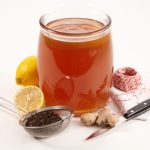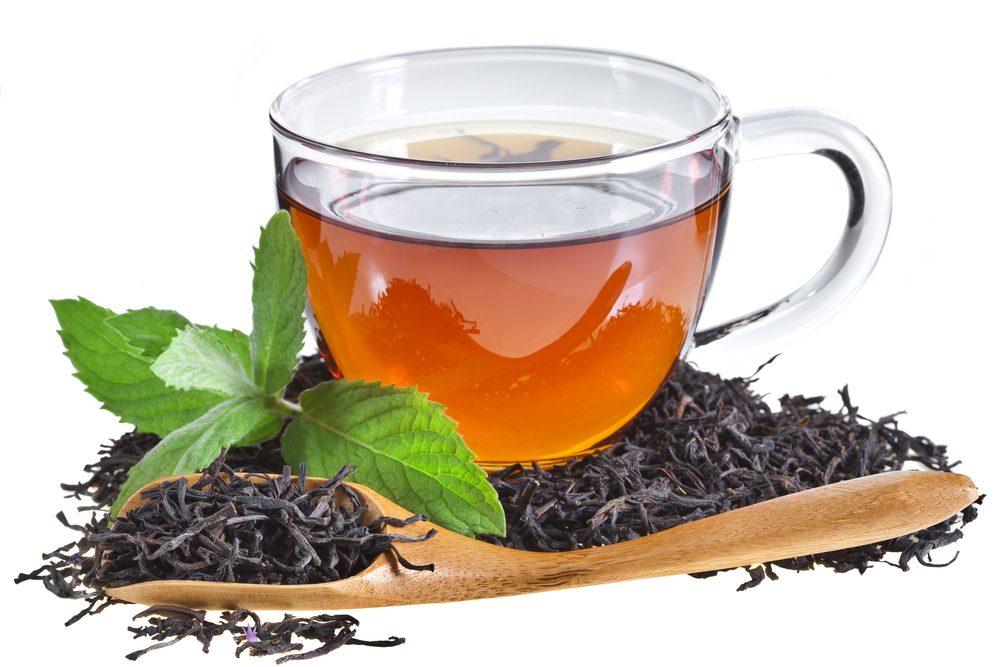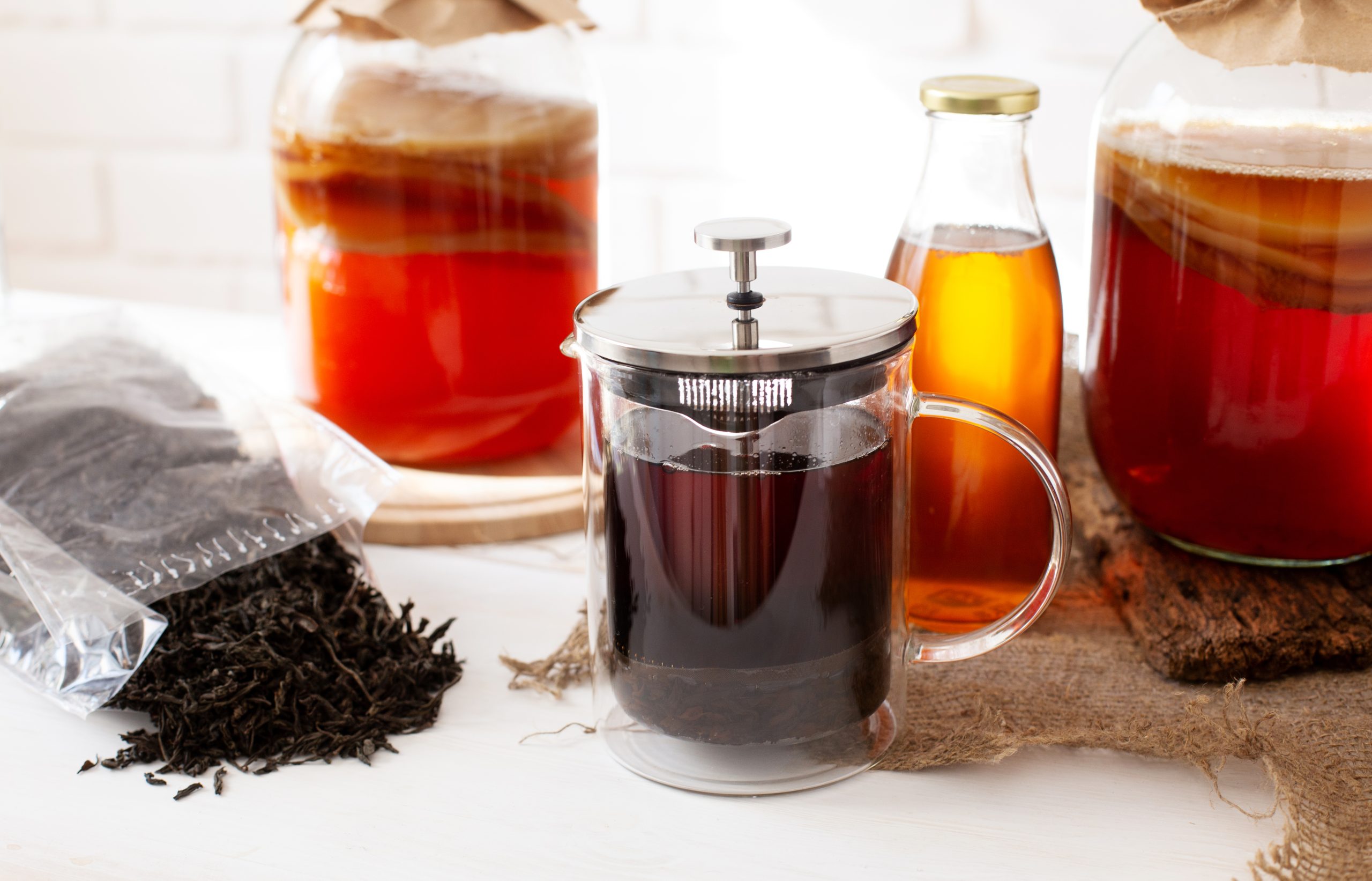If you’ve tried kombucha, chances are you’ve had black tea kombucha. While there are several options for the type of tea you use to make kombucha, black tea is undoubtedly one of the more popular options.
Kombucha brewing can be pretty straightforward. Using black tea as the base for the recipe comes with several added health benefits. Black tea kombucha is an excellent building block for many delicious second-fermentation kombucha recipes.
Table of Contents

Black Tea Kombucha
Total Time: 1 week
Yield: 16 Servings 1x
Description
Black tea is the most common base for kombucha. You can use 100% black tea or 50% black and 50% green tea. Black tea provides the SCOBY with the most nutrients, helping you produce a healthy and delicious batch of fermented tea.
Ingredients
Scale
- 14 cups of water
- 1 cup white sugar
- 8 black tea bags or 8 tablespoons of loose-leaf tea
- 2 cups starter tea or raw, unflavored kombucha (homemade or store-bought is fine)
- 1 kombucha SCOBY (symbiotic culture of bacteria and yeast)
Instructions
- Bring 2 cups of water to a boil.
- Remove from heat and add the tea bags and sugar to the hot water. Stir until dissolved.
- Add the rest of the water to the sweet tea.
- Allow the tea to cool to room temperature.
- Combine the starter tea, sweet tea, and SCOBY in your brewing vessel.
- Cover the jar with a breathable cloth and secure it with a rubber band.
- Put the brewing vessel in a dark, warm area and leave it for 7-14 days to complete the fermentation process.
- Reserve 2 cups for your next batch of kombucha.
- Enjoy the kombucha as-is, or start a second fermentation.
Notes
If you do a second fermentation, you will need to bottle the kombucha after the first fermentation in bottles with tightly-sealed lids and leave it in a dark, warm space for 3-10 days until you have reached your desired level of carbonation.
You can add flavors (juices or fresh fruit) to your second fermentation if you’d like, though it is not necessary. My favorites include passionfruit, hibiscus, fresh ginger, strawberry basil, or chai spices. You can get creative here!
You can use different types of black tea to brew kombucha. Some great-tasting teas that give your kombucha good flavor include Assam tea, English breakfast tea, or Ceylon tea.
- Prep Time: 15 minutes
- Fermenting Time: 7-10 Days
What Does Black Tea Kombucha Taste Like?
Black tea kombucha has hints of black tea flavor with an added fizziness and acidity. Because it is a robust tea, its full-bodied, malty flavor is present in the kombucha, even after a second fermentation. It’s an excellent base for adding warm herbs like vanilla or cinnamon and fruits.
What Are the Health Benefits of Black Tea Kombucha?
Kombucha is known for its abundance of health benefits, which include:
- The presence of probiotics which are good for your gut health
- A high level of antioxidants that fight free radicals in the body
- It may reduce the risk of heart disease
- It can help manage type 2 diabetes
- It may protect against certain kinds of cancers
The health benefits of black tea are also carried over into your fermented tea. Black tea:
- Contains antioxidants
- May boost heart health
- Can be good for your gut health
- May help to reduce “bad” LDL cholesterol
- May reduce the risk of a stroke
- Can help to lower blood pressure
- May reduce the risk of certain types of cancer

How Much Caffeine Is In Black Tea Kombucha?
There are about 15 mg of caffeine per 8 oz of black tea kombucha. It is a low-caffeine drink that can be consumed almost any time of the day. The burst of nutrients and L-theanine may give you a natural, steady boost of energy, but it doesn’t typically interrupt most adults’ ability to sleep.
How Many Calories Are In Black Tea Kombucha?
There are around 30 calories per 8 oz of black tea kombucha. This low-calorie fizzy treat is an excellent substitute for sugary sodas and juices.
Does Black Tea Need a Second Fermentation?
Black tea kombucha does not necessarily need a second fermentation. Some brewers prefer to drink it after the first fermentation when it is just a bit sweet and tart. However, a second fermentation is recommended if you want to add flavor. A second fermentation will also give your fermented tea more carbonation.

